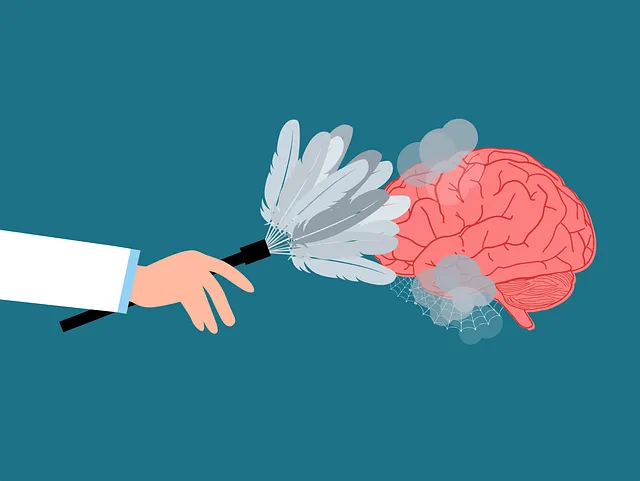The Kaiser Permanente Behavioral Health Center in Golden identifies a growing need for accessible and effective digital solutions for mental wellness, particularly with rising rates of anxiety, depression, and stress-related disorders. They advocate for innovative apps that go beyond basic mood tracking, focusing on evidence-based practices like CBT and mindfulness to manage conditions like depression and build resilience. These apps aim to revolutionize care access and empower users to take control of their emotional health by integrating professional guidance with engaging digital platforms. Success hinges on platform selection (iOS, Android, or both), robust security measures, seamless user experiences, risk assessments, continuous improvement through marketing and partnerships, and strategies to retain users post-launch.
“In today’s digital landscape, mental wellness apps are emerging as a powerful tool for accessible care, reflecting the innovative spirit of organizations like Kaiser Permanente Behavioral Health Center. This article delves into the development of such apps, offering insights from a Golden standard in behavioral healthcare. We explore the evolving market demand, design best practices, and technology considerations to create effective solutions.
From understanding user needs to post-launch strategies, each step is crucial in crafting an app that not only meets but exceeds expectations for mental health support.”
- Understanding Mental Health App Needs: A Kaiser Permanente Behavioral Health Center Perspective
- Market Analysis: Exploring the Demand for Digital Mental Wellness Solutions
- Designing Effective Features: Incorporating Best Practices and Evidence-Based Therapies
- Technology Considerations: Platform Choice, Security, and User Experience
- Launch and Beyond: Marketing Strategies and Continuous Improvement for Mental Wellness Apps
Understanding Mental Health App Needs: A Kaiser Permanente Behavioral Health Center Perspective

At the Kaiser Permanente Behavioral Health Center in Golden, we recognize the growing demand for accessible and effective mental wellness solutions. In today’s fast-paced world, individuals are seeking tools that support their emotional well-being, especially with rising rates of anxiety, depression, and stress-related disorders. Our perspective emphasizes the need for innovative apps that cater to diverse mental health concerns.
Through our expertise in behavioral health, we advocate for apps that go beyond basic mood tracking. We believe effective digital solutions should promote not only symptom management but also prevent and improve conditions like depression prevention, foster self-esteem improvement, and nurture inner strength development. By combining evidence-based practices with engaging user interfaces, mental wellness apps can revolutionize access to care and empower individuals to take charge of their emotional health.
Market Analysis: Exploring the Demand for Digital Mental Wellness Solutions

The digital transformation of mental health services has gained significant traction, especially post-pandemic, as people seek accessible and affordable care solutions. This shift is evident in the growing demand for digital wellness apps, with many users turning to technology for support in managing their mental health. The market analysis reveals a substantial gap in the availability of comprehensive, user-friendly applications that cater to diverse needs, from anxiety relief to trauma support services. Despite established players like Kaiser Permanente behavioral health centers offering digital resources, there is room for innovation and specialized apps focused on specific aspects of mental wellness.
The demand for tailored solutions addressing resilience building and overall emotional well-being is evident in the Golden market (and beyond), indicating a potential for app developers to create targeted interventions. By understanding user preferences and unmet needs, developers can design intuitive tools that enhance traditional therapy or serve as stand-alone resources, ensuring mental wellness apps become integral parts of people’s self-care routines.
Designing Effective Features: Incorporating Best Practices and Evidence-Based Therapies

When designing features for a mental wellness app, it’s essential to incorporate best practices and evidence-based therapies to create a truly effective tool. Drawing inspiration from pioneering institutions like the Kaiser Permanente behavioral health center in Golden, CO, developers can ensure that apps offer valuable support for users’ mental health journeys. For instance, integrating evidence-based techniques such as cognitive-behavioral therapy (CBT) or mindfulness practices has been shown to significantly reduce symptoms of anxiety and stress.
Features focusing on Stress Management Workshops Organization, Anxiety Relief, and Mind Over Matter Principles can empower users with practical tools to navigate their mental health challenges. By combining professional guidance with accessible digital platforms, these apps have the potential to reach a wide audience in need of support, particularly in today’s fast-paced world where stress and anxiety are prevalent. Effective design should prioritize user engagement, privacy, and personalization to foster a safe and supportive environment for users to cultivate resilience and improve their overall mental wellness.
Technology Considerations: Platform Choice, Security, and User Experience

When developing a mental wellness app, platform choice is a pivotal consideration. The decision between iOS, Android, or both, reflects your target audience and market reach. For instance, given the prevalence of Apple devices in certain demographics, choosing iOS could be strategic for reaching specific user groups, while Android offers a broader global coverage.
Security is paramount in mental wellness apps, especially when handling sensitive user data. Implementing robust encryption methods, secure storage solutions, and adhering to industry standards like HIPAA (Health Insurance Portability and Accountability Act) are essential. This ensures the confidentiality, integrity, and privacy of users’ information, building trust similar to how Kaiser Permanente behavioral health centers prioritize patient data security. A seamless user experience is equally vital. Intuitive navigation, accessible design, and integration with existing mental health tools like Mindfulness Meditation or Conflict Resolution Techniques can enhance app usability. Moreover, features enabling regular check-ins, progress tracking, and access to professional support foster continuous engagement. Even considering a risk assessment for mental health professionals within the app can help identify potential issues early on, ensuring a safe and effective digital therapeutic experience.
Launch and Beyond: Marketing Strategies and Continuous Improvement for Mental Wellness Apps

Upon launching a mental wellness app, the initial buzz is just the beginning of a continuous improvement journey. To thrive in this competitive market, developers must employ robust marketing strategies that resonate with users seeking support for their behavioral health. Leveraging digital channels, partnering with established institutions like Kaiser Permanente behavioral health centers, and collaborating with influencers can significantly increase visibility and credibility.
Post-launch, ongoing engagement is key to fostering user retention. Incorporating features that encourage regular use, such as personalized content tailored to individual needs, progress tracking tools, and community forums for sharing experiences, can foster a sense of belonging. Regular updates featuring relevant topics, like inner strength development and conflict resolution techniques, not only keep users engaged but also position the app as a valuable resource in their mental wellness arsenal.
The development of mental wellness apps offers a promising avenue to enhance access to care, particularly in regions like the Golden State, where addressing mental health disparities is imperative. By integrating insights from organizations like Kaiser Permanente Behavioral Health Center and leveraging market trends, developers can create effective solutions that incorporate evidence-based therapies and prioritize user experience. As the demand for digital mental wellness continues to grow, a well-designed app with robust security measures and strategic marketing can significantly impact improving overall mental health outcomes.






